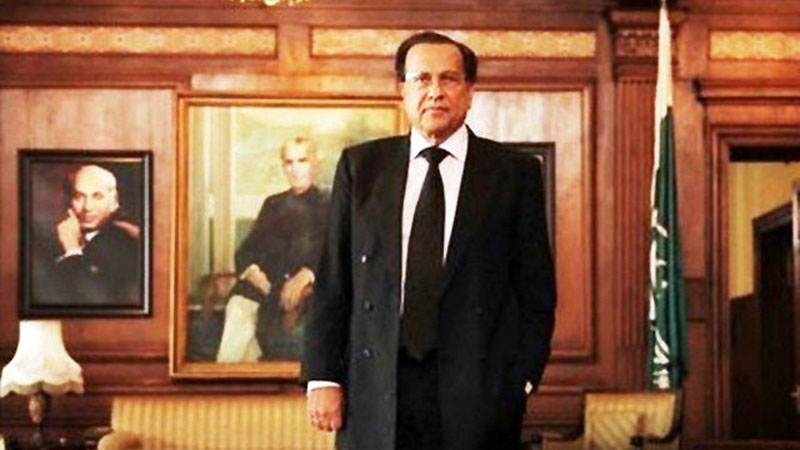 The Supreme Court judgment on Asia Bibi’s case formally vindicated Governor Salman Taseer’s stance on the issue. He did not need the vindication. He would not have cared for it. However, it is proper that it did come, and Asia’s ordeal came to an end. Taseer’s ultimate sacrifice made it nearly impossible for the case to be decided any other way.
The Supreme Court judgment on Asia Bibi’s case formally vindicated Governor Salman Taseer’s stance on the issue. He did not need the vindication. He would not have cared for it. However, it is proper that it did come, and Asia’s ordeal came to an end. Taseer’s ultimate sacrifice made it nearly impossible for the case to be decided any other way.
His distinguishing characteristic was being unafraid. Liberal and progressive voices in Pakistan have understandably internalized euphemism and survival to the extent that plain language now seems suicidal and, on most occasions, impossible. However, not for Taseer. He did it without feet shuffling, throat clearing, apologizing in advance bit. For a country that was and still lives in the trauma of Shaheed Benazir Bhutto’s death, there was a brief, shining moment and Taseer was the star of that moment.
Taseer was one of the first people who visited Gojra, Punjab when forty houses and a Church were torched by a mob and many people were burnt alive. In May 2010, he visited the survivors of the attacks on Ahmadi places of worship in Lahore, which killed 86 people. His first instinct on hearing the news of violent acts of persecution was not how to phrase the condemnation in a language that will not get him in trouble: sadly, for many of us responding to tragedy is above all an exercise in self-indulgence.
Taseer’s commitment to the equality and tolerance was not contingent on self-preservation. It was absolute and unconditional. Tariq Ali in an essay on Taseer for the London Review of Books recalls him and Taseer, as young boys, organizing a demonstration at the US Consulate in Lahore for the death sentence given to Jimmy Wilson, an African-American, who had been sentenced in the US for stealing a dollar. This is an example of him doing the right think even when the spotlight is off. All lights were off in the basement of the Lahore Fort, the country’s most notorious prison under the Zia-ul-Haq regime, where Taseer was kept in solitary confinement and tortured. He proved to be a seemingly unlikely but steadfast lieutenant of Shaheed Benazir Bhutto. He could have remained silent as many did and could have avoided the confrontation. However, he lived to fight another day without being silent and always believed the Lahore Fort prison to be a great “character building” exercise. This was not the last time he was tortured.
Remembering Taseer and scrolling through his twitter feed feels one not only with sadness but also of incredulity: to think this clear language and moral argument was possible less than a decade ago. However, the sobering thought quickly follows, it was fairly without precedent and unbelievable then as well. His commitment to human rights was unshakable and he fought the good fight with flair it deserved. In the days leading up to his death, many people, including myself worried for his safety, many asked him to be “careful,” which in that context meant abandon the principled position. He didn’t care. He wasn’t reckless. He was completely aware of the risks; he was just fearless.
He never felt the need to tailor his opinions to “mainstream” himself. He called out misogyny when he saw it, which is essentially every alternate minute. He made it point to attend all convocations of educational institutions as the governor andhear not only the teachers and administration but the students. His capacity and willingness to engage with young people was limitless. He saw education reform, particularly girl’s education, as his key responsibility. Some of the “old boys” were horrified at the proposal of setting up a sister girls’ school for Aitchison, however, he couldn’t care less for the old boys and their horrors.
In the days leading up to his death, many people, including myself worried for his safety, many asked him to be careful, which in that context meant abandon the principled position. He didn’t care. He wasn’t reckless. He was completely aware of the risks; he was just fearless
He wore the Ayat-ul-Kursi on his chest, under his shirt, however he never felt insecure enough to wear his faith on his sleeve. He transitioned from a card carrying socialist to the country’s most prominent capitalist however the doors of the Governor house were always open to the trade unionists, workers, and students. He never backed down from a dialogue.
In his biography of Zulfiqar Ali Bhutto written in 1980, Taseer writes about a 1976 meeting with him and being captivated by the fact that ZAB remembered in intricate detail, a conversation he had with a very young Taseer seven years ago. When he mentioned this to ZAB, he smiled and said, “that is my job.” The lesson remained with Taseer, he made it his job to remember, particularly those that everyone was trying very hard to forget.
Rest in Peace, Governor.
Saroop Ijaz is a lawyer.
